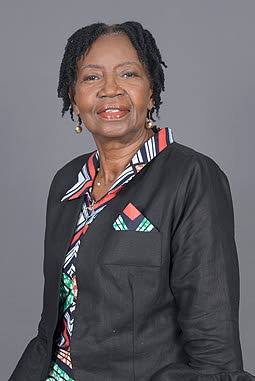Confederation, constitutional change in Tobago

Dr Rita Pemberton
THE SHIFT in imperial interest in its Caribbean possessions was made very evident during the last three decades of the 19th century, when the British administration, after centuries of exploitation of these islands, made it clear that imperial resources would not be used to finance the administration of non-profitable colonies.
This was the situation in which the smaller units in the Caribbean – Grenada, St Lucia, St Vincent, and Tobago – found themselves.
These colonies were all in dire financial straits because their production levels were low, and many estates, unable to generate income, were in debt. Their taxes remained unpaid, causing severe deficits in the islands’ treasuries, which were unable to meet the costs of administration.
Their frequent requests to the imperial government for assistance were met with blunt refusals and instructions to engage in cost-cutting measures, including reducing staff and salaries and appointing officials to serve several colonies, none of which proved effective.
The preferred imperial strategy was to hoist these burdens on to the financially stronger possessions in the region while it reduced its administrative costs by withdrawing those services to the colonies for which it was financially responsible.
The British Government proposed a Confederation of the Windward Islands, with Barbados at the centre. This proposal was one of the developments which had serious implications for Tobago’s political future.
Across the region, the proposal was recognised for what it was: a mechanism to impose the long-held desire of the British government to terminate the embarrassing battles with the local assemblies with which it often had to deal, remove the powers of the existing assemblies, and further reduce the powers of local bodies.
This unpopular proposal evoked strong reactions in all the Windward Islands, but the strongest opposition emanated from Barbados, where the Confederation Riots of 1876 made the position of the Barbados Assembly absolutely clear: Barbados would not participate in such a federation. This forced the British government to exclude Barbados from subsequent discussions on the matter.
However, this did not mean that the imperial administration had abandoned its plan.
In typical British style, in 1883, a royal commission was established to investigate the administration and financial state of the colonies. This commission recommended the establishment of a Windward Islands Federation of Grenada, St Lucia, St Vincent, and Tobago with the seat of government in Grenada. As the smallest unit in the federation, Tobago would have the fewest representatives in the federal council.
The matter stimulated much discussion in Tobago, but the only support for the proposal came from three closely tied individuals: James McCall, Tobago’s most prominent planter/businessman, John Mc Killop, engineer on the Gillespie Estates and attorney for the Gillespie estates and partner of the McCalls, and Duncan Mc Gillivray, who had generally been supporters of the imperial government and its policies.
Strong opposition was voiced by the members of the Tobago Defence Association, a group of smaller planters who felt deeply wounded by the actions of the larger planters, whose support of the imperial government was responsible for the erosion of power between 1874, when they voted for a single-chamber legislature, and 1876, when, after the Belmanna War, they played into the hands of the imperial government and surrendered their powers, making the island a crown colony under direct rule of the British crown.
This frustrated the ambitions of members of the small planting community and the upwardly mobile middle group, who hoped to become part of the island’s decision-making body. They also opposed confederation as a backward step which would bring increased taxation, loss of freedom and increased poverty. and they called for a restoration of representative government.
Larger planters and merchants also objected to the confederation proposal. They said it was a useless, costly exercise which would not satisfy the island’s needs. They lamented the decline of Tobago’s political fortunes and failed to see how any benefit would accrue to the island from confederation. They launched a “No Confederation” protest around the courthouse and called for an end to crown rule.
Bent on implementing its policy and noting the responses from Tobago, the imperial government resorted to a different strategy. Word was out that the island’s popular administrator, Dr John Carrington, was carded to be transferred from the island. Letters and petitions from various groups requesting his reinstatement provided an opportunity for the governor to use these requests as the basis for negotiation and convincing groups on the island to support confederation.
When Governor Robinson came to Tobago, he offered concessions: lighter taxation; a partly elected municipal council; and some semblance of local self-government. Tobago would be allotted two representatives on the federal council, an allocation that was more than the island would normally receive.
Robinson assured his seniors that he had made no promise of a return to representative government.
Although the British government had no intention of reinstating representative government in the colonies, it sought to obtain some appearance of local sanction for their policies.
Noting the hostility to confederation that was expressed in all the affected colonies, the British government retreated on the confederation issue, but that did not mean its policy towards impoverished colonies had been aborted.
The immediate initiation of steps to bring Tobago into a union with Trinidad demonstrated that unifying a weak colony with a financially stronger one remained an active part of British imperial policy.
The confederation issue influenced the direction of Tobago’s constitutional history away from long-term association with the Windward Islands to political union with Trinidad.


Comments
"Confederation, constitutional change in Tobago"